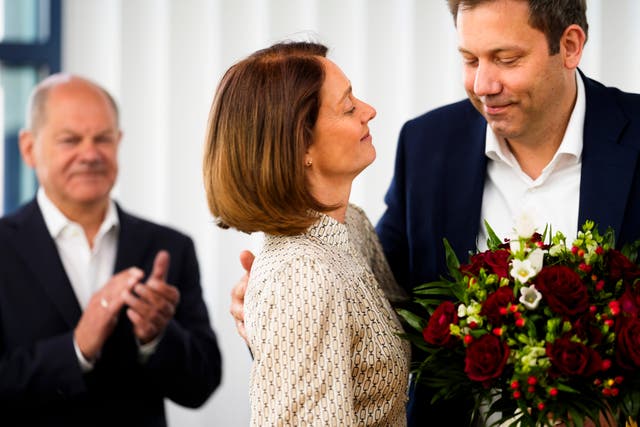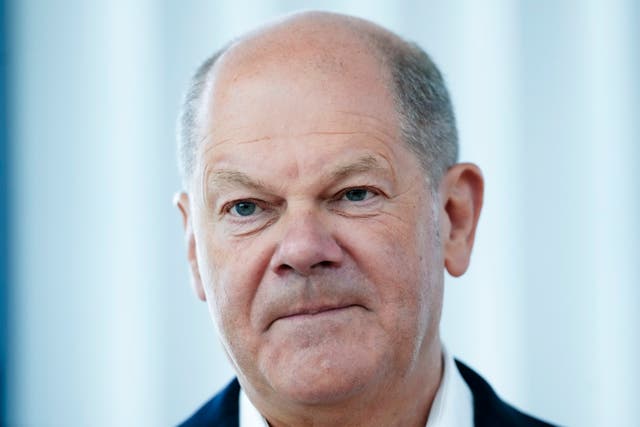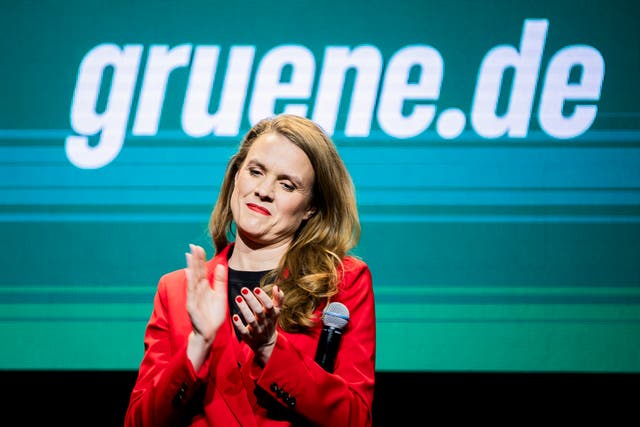Poor European election showing dents German leader’s authority

Dismal results for Germany’s governing parties in the European Parliament election have dented Chancellor Olaf Scholz’s authority and could prompt even more of the infighting that just cost the government dearly.
A clear win for Germany’s mainstream conservative opposition boosted its confidence as the country begins to look ahead to a national election expected in the autumn of 2025, but raises questions about why it is not benefiting more from the unpopularity of Mr Scholz’s government.
The defeat of the three parties in Mr Scholz’s unpopular coalition “really wasn’t surprising, but the level they’ve dropped to is quite shocking for a governing coalition”, said Andrea Rommele, a political science professor at the Hertie School in Berlin.
Mr Scholz’s Social Democrats, the environmentalist Greens and the pro-business Free Democrats secured less than a third of the vote.
Mr Scholz’s coalition government set out to modernise Germany but has gained a reputation for constant discord and poor communication as the economy struggles to generate growth.
The coalition partners argued throughout the campaign about how to put together a 2025 budget while adhering to Germany’s tight self-imposed rules on running up debt.

“The sense in Germany at the moment is that the current government is not getting things done,” Ms Rommele said.
“I do think they are getting things done, not all of them but quite a number of them, but they have to communicate that properly … and they have to stop having these internal coalition fights.”
Chances of that do not look good. The Social Democrats’ co-leader, Lars Klingbeil, said on Sunday night that “our people want to see us fight” for its priorities.

Opposition leader Friedrich Merz celebrated his Union bloc’s win and described the outcome as “a serious defeat for the Chancellor, who was on posters across the country”.
Fellow conservatives suggested that Mr Scholz should call a parliamentary confidence vote or that new elections might be needed – suggestions the governing parties dismissed.
“He went all-in in this campaign … so it is also his loss,” Ms Rommele said.

AfD celebrated its showing of 15.9% despite a series of setbacks this year that included the party sidelining its top two candidates from the election campaign due to scandals and being kicked out of its hard-right group in the European Parliament.
Party co-leader Tino Chrupalla said, “we are used to headwind and so it just makes us stronger”.
“People have anxieties. They have anxieties about their future; they have anxieties about not earning enough, about not making enough, about having too many migrants and asylum seekers in their cities,” Ms Rommele said. “And that’s something that the AfD appeals to.”
Related
The European country that now has below net zero immigration…
Immigration has been one of the most crucial and divisive issues in the UK for several years - with it being debated through the Brexit referendum, recent gener
Iranian minister to meet European counterparts after nuclear offer rejected
Iran’s deputy foreign minister, Majid Takht-Ravanchi, will meet his European counterparts in Geneva on Friday after the collapse of a deal last week under whi
Iran to hold nuclear talks in Geneva with European powers
Iran will hold talks about its disputed nuclear programme with three European powers on November 29, the Iranian foreign ministry said on Sunday, days after the









